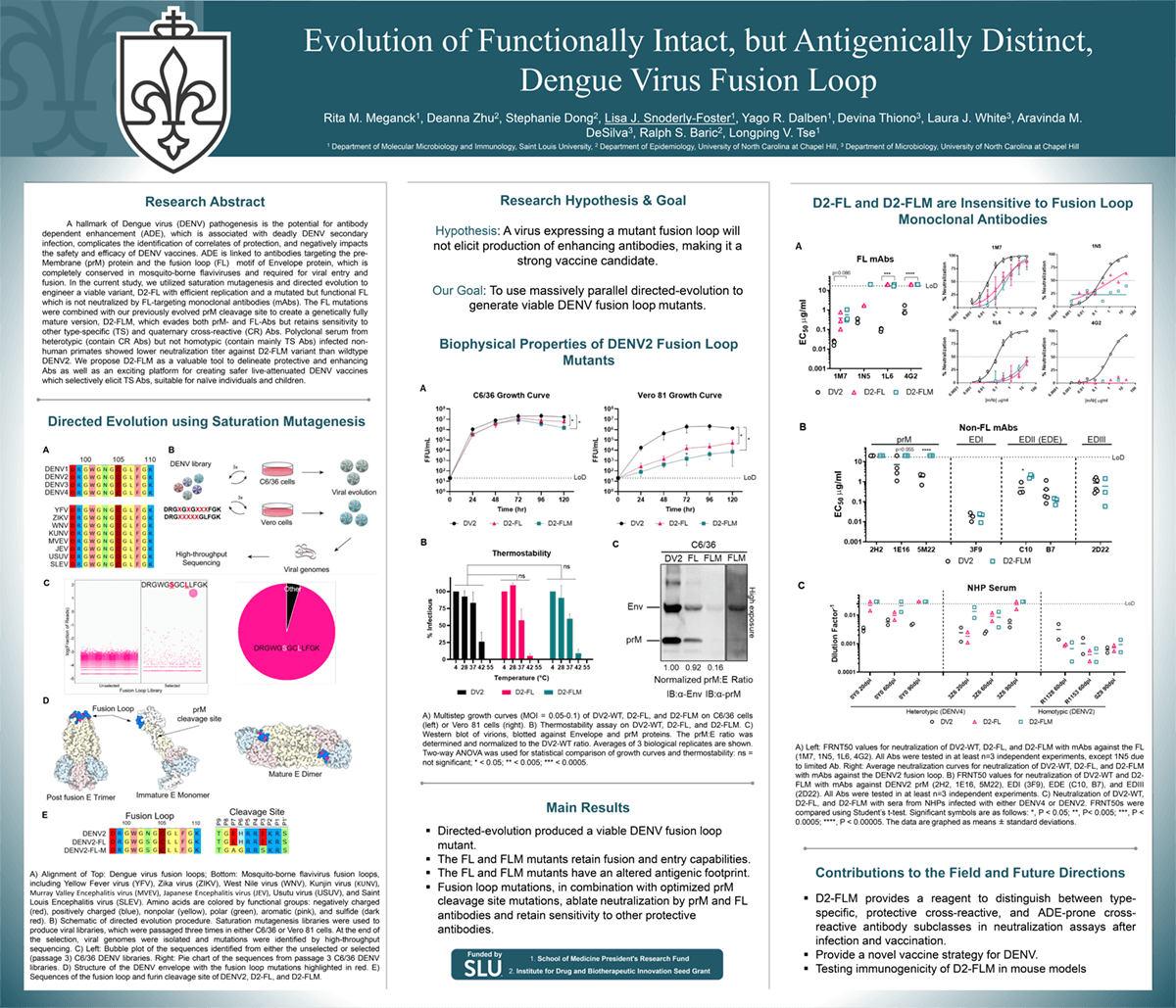
Introduction: A hallmark of Dengue virus (DENV) pathogenesis is the potential for antibody dependent enhancement (ADE), which is associated with deadly DENV secondary infection, complicates the identification of correlates of protection, and negatively impacts the safety and efficacy of DENV vaccines. ADE is linked to antibodies targeting the pre-Membrane (prM) protein and the fusion loop (FL) motif of Envelope (E) protein, which is completely conserved in mosquito-borne flaviviruses and required for viral entry and fusion. It has been a commonly-held belief that the FL could not be altered due to its role in viral fusion and entry. However, we hypothesized that a DENV-FL mutant could be generated through directed evolution and that such a mutant could be a valuable tool in producing a more efficacious vaccine against DENV.
Methods: Saturation mutagenesis and directed evolution were used to engineer a functional variant with a mutated FL. Downstream analysis included DENV growth kinetics, DENV thermal stability assay, and neutralization assays.
Results: In the current study, we engineer a functional variant with a mutated FL (D2-FL) which is not neutralized by FL-targeting monoclonal antibodies. The FL mutations were combined with our previously evolved prM cleavage site to create a mature version of D2-FL (D2-FLM), which evades both prM- and FL-Abs but retains sensitivity to other type-specific and quaternary cross-reactive (CR) Abs. CR serum from heterotypic (DENV4) infected non-human primates (NHP) showed lower neutralization titers against D2-FL and D2-FLM than isogenic wildtype DENV2 while similar neutralization titers were observed in serum from homotypic (DENV2) infected NHP.
Impact: ADE of Dengue has been linked to the production of weakly-neutralizing CR antibodies against the prM and FL epitopes of DENV. Making these epitopes unrecognizable within a vaccine could reduce the production of these harmful antibodies. Our results demonstrate that the DENV-FLM mutant retains the ability to infect cells, but is insensitive to monoclonal antibodies against prM and FL. We propose D2-FL and D2-FLM as valuable tools to delineate CR Ab subtypes in serum as well as an exciting platform for safer live attenuated DENV vaccines suitable for naïve individuals and children.
Organization: Saint Louis University
Snoderly-Foster LJ, Meganck RM, Zhu D, Dong S, Dalben YR, Thiono D, White L, Desilva AM, Baric RS, Tse LPV